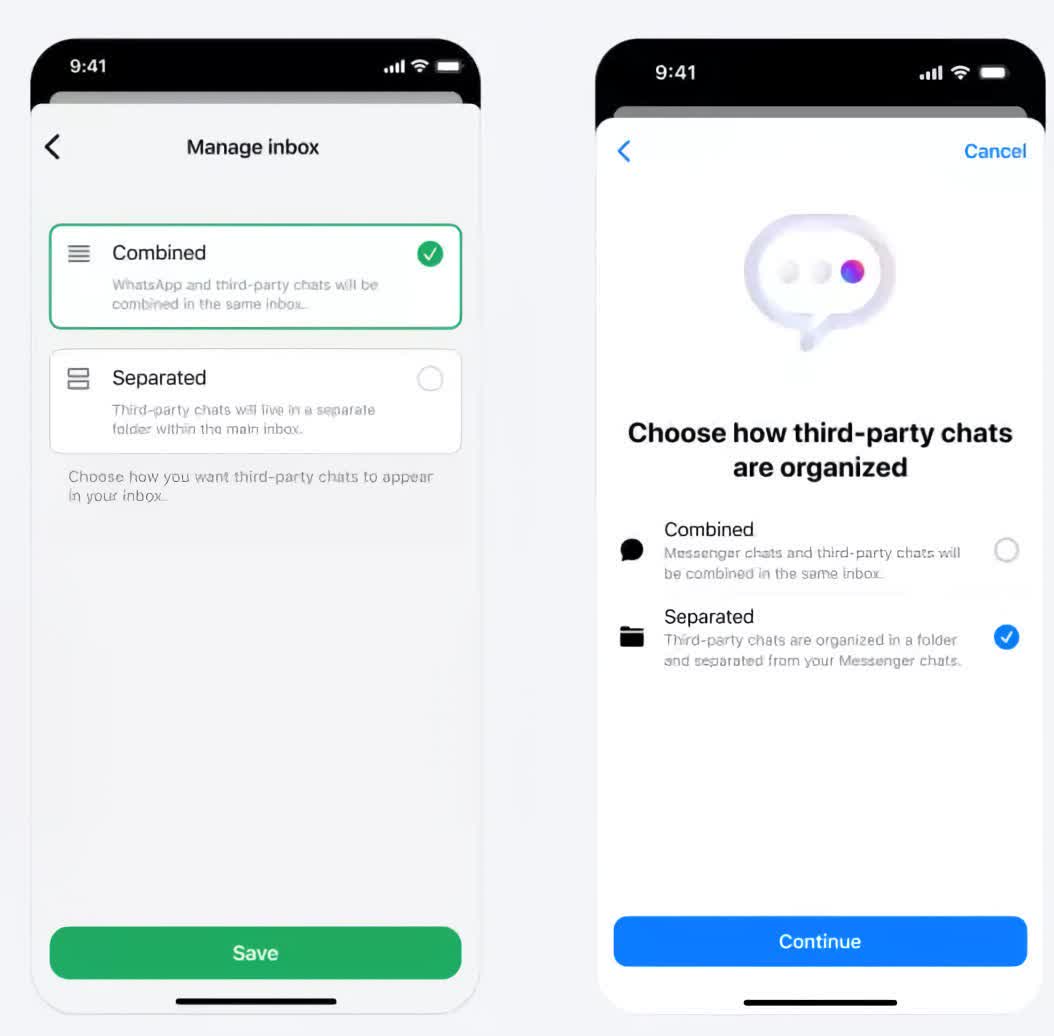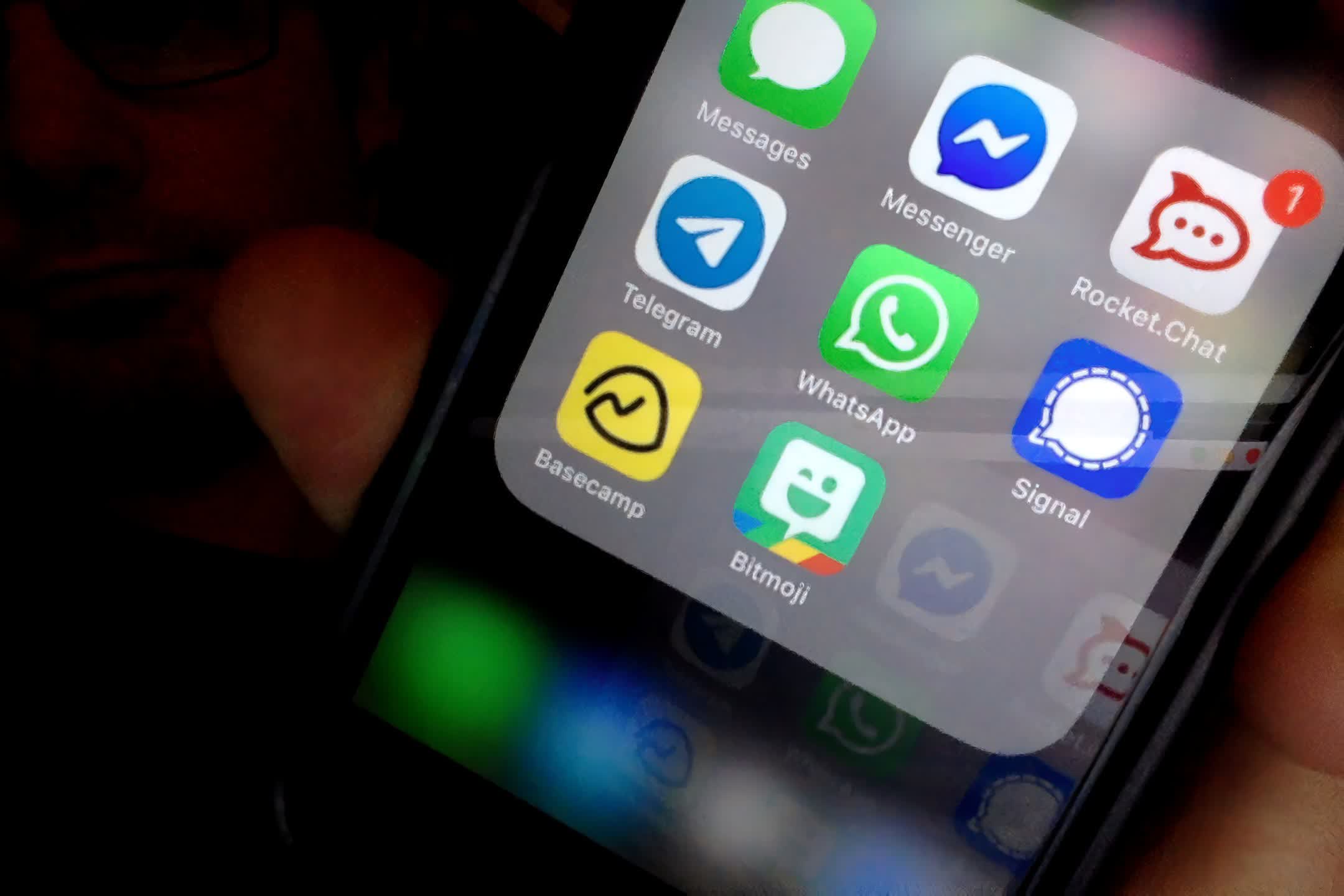Editor's take: As part of Meta's obligations under the EU's Digital Markets Act, the company has to make WhatsApp and Messenger interoperable with other messaging apps like Apple Messages, Telegram, Signal, and Google Messages. Meta has now revealed how third-party chats on WhatsApp and Messenger will work for users in Europe.
As cool as these changes may look, they are limited to users in the EU. It is unclear whether Meta plans to expand availability worldwide. Theoretically, it wouldn't be difficult once the European transition is complete.
However, Meta doesn't gain anything from it, so the motivation to implement interoperability globally isn't there. Mandates forcing the company's hand from outside Europe also seem unlikely since few other countries have followed the EU's regulatory approach.

Rather than forcing a one-size-fits-all approach, Meta will allow users to choose which third-party apps they want to integrate. Users can keep third-party chats neatly separated in a dedicated inbox folder or combine everything – WhatsApp, Messenger, and external messages – into a single unified inbox. Each Meta app will present these preferences during setup, but users can switch views anytime.
Meta recognizes that some users may need guidance, so it has included an onboarding process that explains third-party integration and lets users toggle which external apps they want to allow. Once enabled for a particular service, Meta will push notifications whenever new compatibility rolls out.

More importantly, Meta says it will offer full-fledged rich messaging features across third-party chats, including reactions, direct replies, typing indicators, and read receipts from day one. Users of other apps will even be able to join group chats in 2025, with voice/video calling following in 2027.
Making all these different messaging platforms talk to each other is no easy feat. One major hurdle is getting everyone on the same encryption protocol to maintain security. Meta's solution is to share access to the Signal Protocol used by WhatsApp.
However, third-party apps would need to integrate the protocol and get Meta's approval on the implementation, which is easier said than done. Regardless, it's a mandatory step outlined in the official agreement Meta plans to have service providers sign.
Image credit: Open Rights Group
